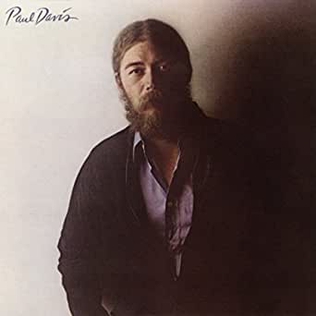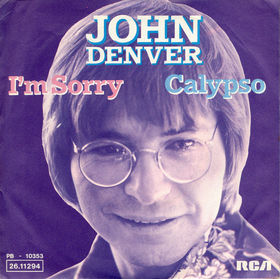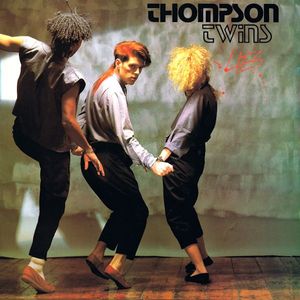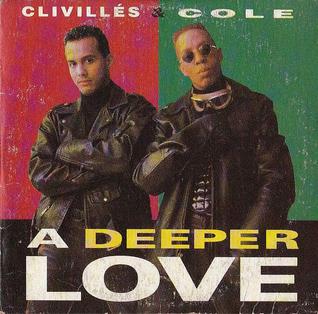
"Lost in Love" is a song recorded by the British/Australian soft rock duo Air Supply. The song was written by group member Graham Russell. The original version of the song appeared on the Life Support album in 1979 and was released as a single in Australia, reaching number 13 on the Kent Music Report. The song was remixed for the album of the same name in 1980 and this version was released as a single in the US, reaching number 3 on the Billboard Hot 100.

"Stoned Love" is a 1970 hit single recorded by The Supremes for the Motown label. It was the last Billboard Pop Top Ten hit for the group, peaking at number seven, and their last Billboard number-one R&B hit as well, although the trio continued to score top ten hits in the UK into 1972. In the UK, it was the post-Ross Supremes' biggest hit, reaching number 3 in the singles chart. The single spent six weeks in the UK top ten and five weeks in the US top ten. The BBC ranked "Stoned Love" at number 99 on The Top 100 Digital Motown Chart, which ranks Motown releases solely on their all time UK downloads and streams.

Paul Lavon Davis was an American singer and songwriter, best known for his radio hits and solo career that started worldwide in 1970. His career encompassed soul, country, and pop. His most successful songs are 1977's "I Go Crazy", a No. 7 pop hit that once held the record for the longest chart run on the Billboard Hot 100, and 1982's "'65 Love Affair", which at No. 6 is his highest-charting single. Another pop hit, "Cool Night", was released in 1981. In the mid-1980s, he also had two No. 1 country hits as a guest vocalist on songs by Marie Osmond and Tanya Tucker.

"Hurts So Good" is a song by American singer-songwriter John Mellencamp, then performing under the stage name "John Cougar". The song was a number two hit on the Billboard Hot 100 for the singer/songwriter. It was the first of three major hit singles from his 1982 album American Fool. The others were "Jack & Diane" and "Hand to Hold on To," which were all released in 1982. The song was also a critical success with Mellencamp, winning the Best Rock Vocal Performance, Male at the 25th Grammy Awards on February 23, 1983.

"Help Me Make It Through the Night" is a country ballad written and composed by Kris Kristofferson and released on his 1970 album Kristofferson. It was covered later in 1970 by Sammi Smith, on the album Help Me Make It Through the Night. In 1982, Kris did a re-recording with Brenda Lee for the compilation album The Winning Hand. It has been covered since by many other artists from Tammy Wynette and Johnny Cash to Elvis Presley, Joan Baez, Bryan Ferry, Mark Eitzel, and Tyler Childers.

"I'll Never Fall in Love Again" is a popular song by composer Burt Bacharach and lyricist Hal David that was written for the 1968 musical Promises, Promises. Several recordings of the song were released in 1969; the most popular versions were by Dionne Warwick, who took it to number 6 on Billboard magazine's Hot 100 and spent three weeks topping the magazine's list of the most popular Easy Listening songs, and Bobbie Gentry, who topped the UK chart with her recording and also peaked at number 1 in Australia and Ireland, number 3 in South Africa and number 5 in Norway.

"Stray Cat Strut" is the third single by American rockabilly band Stray Cats, released April 17, 1981 by Arista Records in the UK, where it peaked at No. 11 on the Singles Chart. It was taken from the band's 1981 debut album, Stray Cats. That same year, as an import, it peaked at No. 78 on the US Disco Top 80 chart.

"More Love" is a 1967 hit single recorded by the American soul group The Miracles for Motown Records' Tamla label. The single, included on the group's 1967 album Make It Happen, later reissued in 1970 as The Tears of a Clown. Kim Carnes's 1980 cover of the song reached the Top 10 of Billboard's Adult Contemporary and Hot 100 charts.
"Wedding Bell Blues" is a song written and recorded by Laura Nyro in 1966. The best known version was a number one hit for the 5th Dimension in 1969.

"I'm Sorry" is a song written and recorded by American country-folk singer-songwriter John Denver and released in 1975. It was the final number-one pop hit released during his career. The flip side of "I'm Sorry" was "Calypso", and, like its A-side, enjoyed substantial radio airplay on Top 40 stations.

"Take Me in Your Arms (Rock Me a Little While)" is a song written by the premier Motown songwriting/production team of the 1960s Holland–Dozier–Holland. The first hit recording was sung by Kim Weston in 1965. It was most popular in 1975 when it was recorded by the Doobie Brothers.

"Lies" is a song by the British pop band Thompson Twins. It was released as the first single from their third studio album Quick Step & Side Kick, and the song peaked at number 67 on the UK Singles Chart. The single fared better in the United States, where it peaked at number 30 on the Billboard Hot 100 chart in the spring of 1983. Along with the B-side track "Beach Culture", "Lies" also spent two weeks at number one on the American dance chart in January 1983, becoming the band's second number one on this chart.

"Longer" is a song written and recorded by the American singer-songwriter Dan Fogelberg and released in 1979 by Full Moon Records and Epic Records. The song can be found on Fogelberg's 1979 album Phoenix. It was also included on his 1982 greatest hits album as well as various other retrospective and compilation recordings.

"Love or Let Me Be Lonely" is a pop song recorded by the soul group The Friends of Distinction and released as a single in early 1970. The song was a multi-format success, peaking at #6 on the Billboard Hot 100 on May 1, 1970. It also reached #13 on the R&B chart, and #9 on the Adult Contemporary singles chart. The song is ranked as No. 63 on the Hot 100 singles of 1970.

"If You Love Me (Let Me Know)" is a song written by John Rostill that was a 1974 hit single for Olivia Newton-John. It was her second release to hit the top 10 in the United States, reaching number 5 on the pop chart and number 2 on the Easy Listening chart. It also reached number 2 on the Billboard country chart. As with her single "Let Me Be There", Mike Sammes sings a bass harmony. It was nominated for the 1974 Country Music Association Award for Single of the Year.

"What You Won't Do for Love" is a song by American singer-songwriter Bobby Caldwell. It was released in September 1978 as the lead single from his eponymous debut album (1978). It was written by Caldwell and Alfons Kettner, and produced by Ann Holloway. The song has been covered and sampled numerous times, including by Tupac Shakur in the posthumous 1998 hit "Do for Love".

"We'll Never Have to Say Goodbye Again" is a song by Jeffrey Comanor from the album A Rumor in His Own Time, which debuted in September 1976. Written by Comanor, the song describes a couple who spend a night together, one which the narrator wishes would "never end". Both the song, which Epic Records released as a single, and album failed to chart.

"Never Ending Song of Love" is a song written by Delaney Bramlett, and, according to some sources, by his wife Bonnie Bramlett. It was originally recorded with their band, Delaney & Bonnie & Friends, in 1971 on the album Motel Shot. Released as a single by Atco Records the same year, "Never Ending Song of Love" became Delaney & Bonnie's greatest hit on the pop charts, reaching a peak of No. 13 on the Billboard Hot 100 and No. 8 on Easy Listening. It reached No. 16 in Australia.

"A Deeper Love" is a song written by American producers Robert Clivillés and David Cole, and performed by them as Clivillés & Cole featuring vocals by Deborah Cooper. Released by Columbia Records in 1991, the song was the duo's fifth number-one on the US Billboard Hot Dance Club Play chart. On other US charts, "A Deeper Love" peaked at number 83 on the soul singles chart and number 44 on the pop chart. Overseas, especially in Europe the single charted higher, going to number 15 in the UK and number eight on the Dutch Top 40.

"We're in This Love Together" is a 1981 hit song by Al Jarreau. It was the first of three single releases from his fifth studio album, Breakin' Away. The song was his first and biggest chart hit.


















